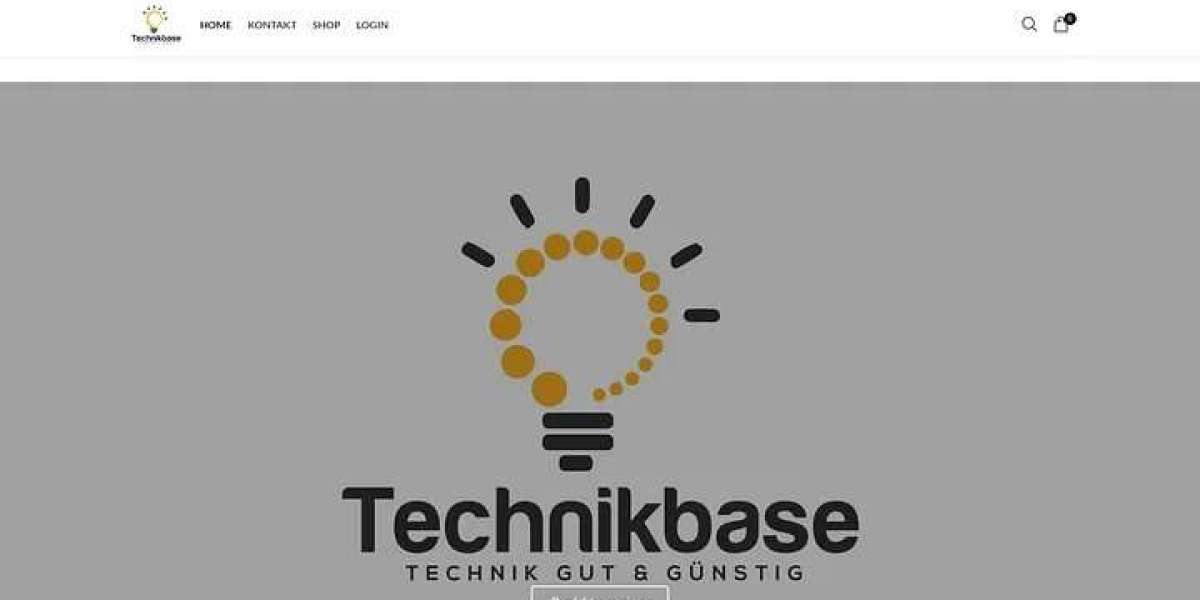Odoo, an open-source enterprise resource planning (ERP) software, is one of the most versatile and widely-used tools in business today. Its modular structure allows businesses to customize various features and modules to suit their specific needs. Odoo's adaptability is one of its main advantages, as it can be tailored for different industries, whether it’s manufacturing, retail, healthcare, or service-based sectors.
This guide explores the essential steps for customizing Odoo modules for different industries, the benefits of doing so, and the various techniques involved. Additionally, we will highlight the importance of professional Odoo Customization Services to ensure that the changes meet business goals, scalability requirements, and industry-specific standards.
Understanding Odoo’s Modular Framework
Before diving into customization, it’s important to understand Odoo’s modular structure. At its core, Odoo is composed of numerous modules that serve different purposes such as accounting, sales, inventory, CRM, HR, and many others. These modules are independent but can be seamlessly integrated to work together.
The real power of Odoo lies in its flexibility. Customization allows businesses to add, remove, or modify modules based on their unique needs. For instance, a manufacturing company may need specialized features for inventory management and production tracking, while a retail business may prioritize POS (point of sale) and e-commerce integration.
Steps to Customize Odoo for Different Industries
- Identify Business Requirements
The first step in customizing Odoo for any industry is to conduct a detailed analysis of the business's needs. This requires a thorough understanding of the specific processes, workflows, and challenges within the industry. For example, a hospital will need customized patient management, billing, and inventory modules, whereas a retail store may need specific features for product categorization, customer loyalty programs, and stock management.
Key aspects to focus on:
- Industry-specific processes (e.g., manufacturing, healthcare, retail)
- Integration requirements (e.g., third-party systems, legacy software)
- Automation needs (e.g., workflow optimization)
- Reporting and compliance (e.g., regulatory standards)
- Choose the Right Modules
Odoo offers a vast array of pre-built modules, and the next step is to choose those that best fit the industry’s needs. Some core modules available in Odoo include:
- Sales and CRM: For managing leads, opportunities, and customer interactions.
- Accounting and Finance: For handling invoicing, tax calculations, and financial reports.
- Inventory Management: To track stock levels, manage warehouses, and oversee order fulfillment.
- Manufacturing: To manage production processes, including bill of materials (BOM), work orders, and production schedules.
- HR and Payroll: For managing employee data, timesheets, and payroll.
- eCommerce and POS: For managing online stores and retail point-of-sale systems.
While these modules provide a strong foundation, they may not cover every specific need, especially for niche industries. For this reason, customization is necessary.
- Tailor the Modules for Industry-Specific Needs
Once the core modules are chosen, businesses need to tailor them to their specific requirements. Customization can involve:
- Modifying the UI/UX: Personalizing the interface to match industry-specific workflows or improve user experience.
- Adding New Fields and Features: Businesses can create custom fields, buttons, and reports that reflect industry-specific processes (e.g., a field for patient ID in a hospital’s CRM system).
- Workflow Automation: Automating repetitive tasks such as sending out invoices or generating inventory reports based on specific triggers (e.g., low stock levels).
- Integrating with Third-Party Applications: Many industries rely on specialized tools for areas like supply chain management, medical record-keeping, or point of sale. Integrating these tools with Odoo ensures smooth data flow and reduces duplication.
- Develop Custom Modules
In some cases, the required functionality may not be available through existing modules or modifications. In these instances, businesses can develop custom modules from scratch or modify existing ones. This may include creating new functionalities like a custom billing system for the healthcare industry or adding advanced inventory tracking for a logistics company.
Custom development within Odoo can involve:
- Backend Customization: Writing code to extend the functionality of existing modules or build entirely new features.
- Frontend Customization: Customizing the user interface to improve usability or match branding guidelines.
- Reports and Dashboards: Creating custom reports and dashboards that align with industry metrics.
- Testing and Quality Assurance
Before going live with customized Odoo modules, businesses must conduct extensive testing. The goal is to ensure that the modules meet the industry-specific requirements and function as expected without bugs or errors. Testing can involve:
- Functional Testing: Verifying that all features work as intended.
- Usability Testing: Ensuring the system is intuitive and easy to use for all stakeholders.
- Performance Testing: Checking how well the system handles large amounts of data and users.
- Deployment and User Training
Once the customizations are finalized and tested, the next step is to deploy the changes. This may involve migrating data from previous systems, setting up servers, and ensuring that the infrastructure is optimized for Odoo’s requirements.
Training end-users is also crucial to ensure they can make the most of the customized Odoo system. Training programs should be tailored to specific industry roles and should cover the new functionalities, workflows, and modules introduced during customization.
Industry-Specific Customization Examples
Odoo’s flexibility allows for customization across various industries. Below are a few industry-specific examples of how businesses can tailor Odoo to meet their needs:
1. Manufacturing Industry
In manufacturing, businesses need tools that help with production planning, supply chain management, and inventory control. Key customization features include:
- Production Scheduling: Odoo can be customized to automatically generate production orders based on sales forecasts, ensuring smooth production flow.
- Inventory and Warehouse Management: Custom features such as barcode scanning, stock tracking, and batch management can be added to improve inventory control.
- Quality Control: Custom modules can be developed to track quality standards at different stages of production.
2. Healthcare Industry
Healthcare providers face unique challenges around patient management, billing, and regulatory compliance. Odoo can be tailored with:
- Patient Management: Creating modules for patient intake, appointment scheduling, medical records, and treatment history.
- Billing and Insurance Integration: Customizing invoicing systems to work with insurance providers and handle medical billing standards.
- Compliance and Reporting: Custom reports and dashboards to ensure adherence to healthcare regulations such as HIPAA or GDPR.
3. Retail and eCommerce
Retailers require advanced POS systems, inventory management, and customer engagement features. Customization in this industry can include:
- POS Integration: Tailoring the POS module to handle specific product types, loyalty programs, and promotions.
- eCommerce Customization: Integrating eCommerce platforms with Odoo to manage inventory, sales, and customer service from a centralized system.
- Customer Loyalty Programs: Adding features for reward systems and personalized customer interactions.
4. Service-Based Industries
For service-oriented businesses, customer management and project tracking are crucial. Custom Odoo modules can focus on:
- Project Management: Tailoring project management tools to track time, tasks, and resource allocation for service-based businesses.
- Customer Support: Customizing the helpdesk or ticketing systems to ensure timely resolution of customer issues.
- Subscription Management: For businesses offering recurring services, Odoo can be tailored to handle subscriptions, invoicing, and renewals.
Benefits of Odoo Customization
Customizing Odoo for different industries offers several key benefits:
- Increased Efficiency: Streamlined workflows and automation reduce manual effort, enabling employees to focus on high-value tasks.
- Improved User Experience: A tailored interface ensures that users have access to the right tools and features for their roles, improving productivity.
- Scalability: Custom modules allow businesses to grow without outgrowing their ERP system, as new features and functionalities can be added as needed.
- Competitive Advantage: A highly customized ERP system can provide unique insights and capabilities, giving businesses an edge over competitors using generic solutions.
Why You Need Professional Odoo Customization Services
While Odoo provides a great platform for customization, implementing these changes requires deep technical expertise and understanding of business processes. Professional Odoo customization services can help ensure that the modifications align with your industry’s needs, are scalable, and are built to handle future growth. Experienced developers and consultants can also help with:
- Designing custom modules and workflows.
- Ensuring that the system integrates smoothly with other business tools.
- Providing ongoing support and updates.
Conclusion
Odoo's adaptability makes it an ideal solution for businesses across industries. Customizing Odoo modules for specific business needs can significantly improve efficiency, enhance user experience, and drive growth. By following the steps outlined in this guide, businesses can create an ERP system that not only fits their industry requirements but also scales with their growth.
For those looking to make the most out of Odoo’s customization capabilities, working with professional Odoo Customization Services is crucial to ensuring that the system is perfectly suited to the needs of the business.
































